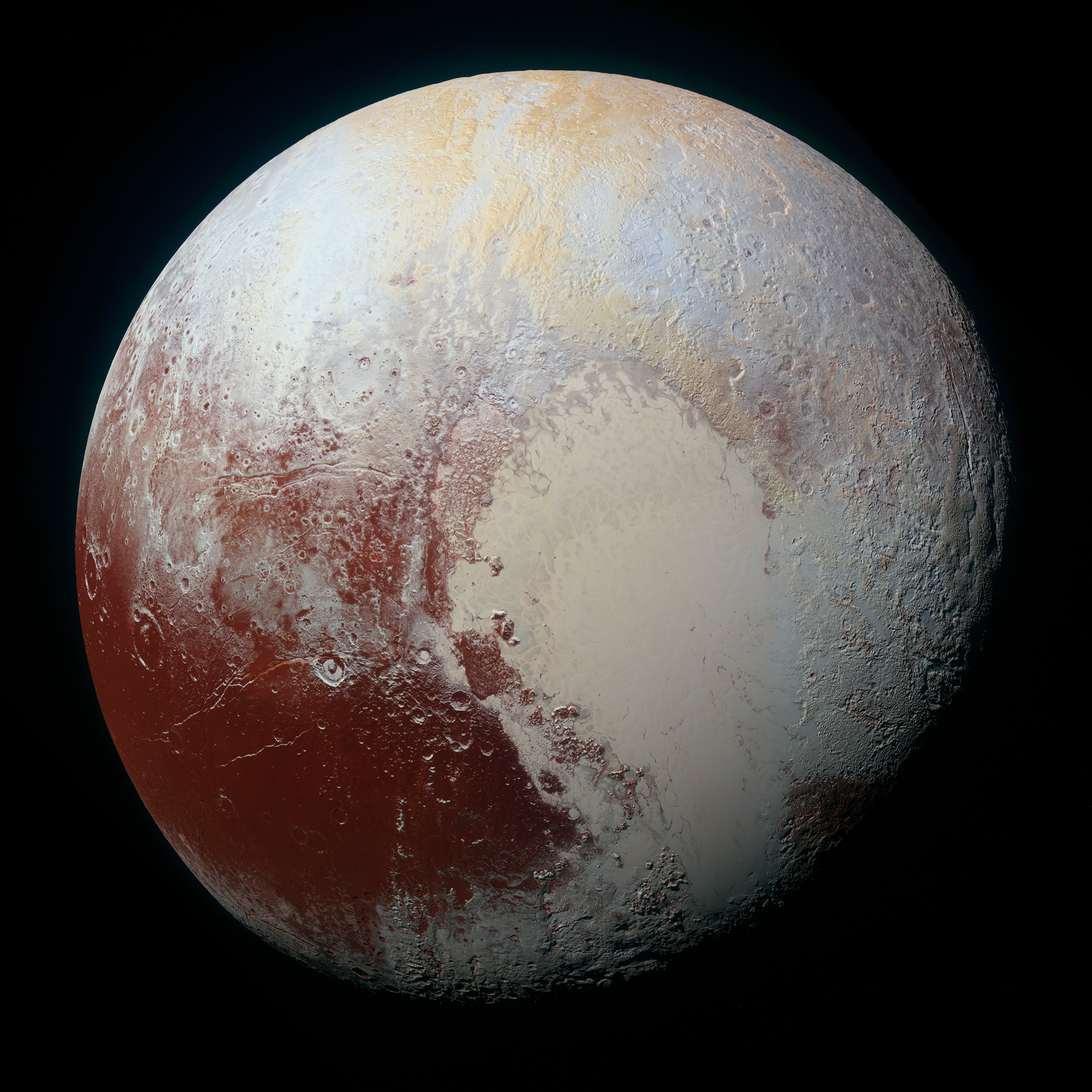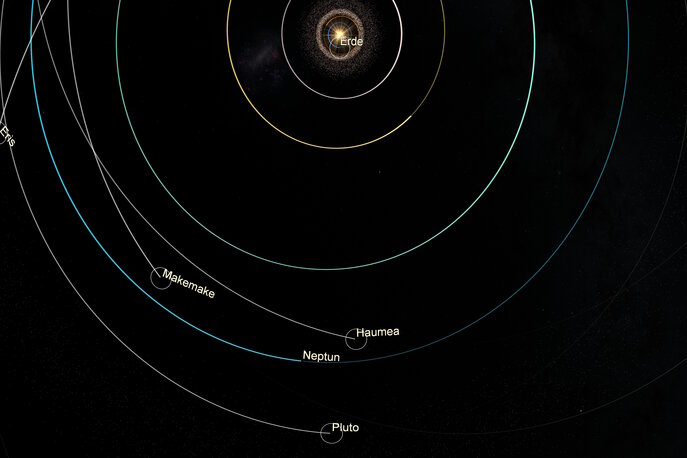
No astronomical object divides society and stirs up emotions like Pluto, which has not been counted as a planet for almost two decades.
In 2006, the important decision was made to deny Pluto planetary status. It was at the conference of the International Astronomical Union in Prague that the urgency of defining the group of planets more precisely was recognized, as more and more objects were being found beyond the orbit of Neptune, the outermost planet after Pluto at the time.
The definition was as follows:

"A planet is a celestial body that (a) orbits the sun, (b) has sufficient mass to assume a hydrostatic equilibrium shape (almost round shape) due to its own gravity and (c) has cleared its orbit of other objects."
The definition of planets, International Astronomical Union
But it was precisely this definition that proved to be Pluto's undoing. With a diameter smaller than that of the Earth's moon and many relatively similar companions, criterion (c) in particular could not be fulfilled by Pluto.
Even though this change not only angered many astronomers, but even some of the entire world's population, it was not the first time in the history of astronomy that planets were stripped of their status.
Until 1851, some of today's asteroids such as Pallas, Juno, Vesta and Astraea were also considered planets of the solar system, until new objects were constantly discovered in their orbits and the group of asteroids was introduced. They can be seen in the diagram as small orange dots near the Earth's orbit.
Pluto is therefore no longer one of its big siblings, the planets (see diagram on the right), but it became the founding father and also king of the dwarf planets, a group of celestial bodies that do not quite meet the definition of a planet and usually fail criterion (c). Other dwarf planets, such as Haumea, Eris or Makemake.

But without this criterion, we might not be talking about 8 but 15, 20 or 30 planets these days and learning them would be much more laborious than:
"My father explains our night sky to me every Saturday."
My (Mercury), father (Venus), explains (Earth), to me (Mars), every (Jupiter), Saturday (Saturn), our (Uranus), night sky (Neptune).
The Swiss band "Lo & Leduc" have even dedicated a song to Pluto
Lo & Leduc - Pluto
Author

Dorothea Holzschuh
Teamleader Planetarium